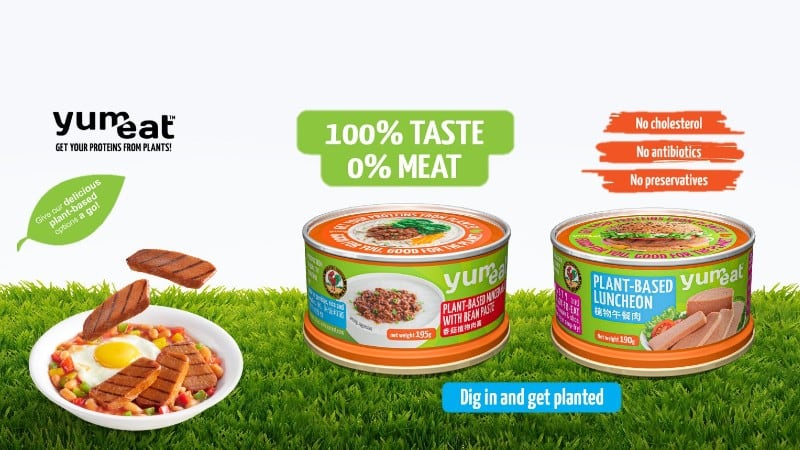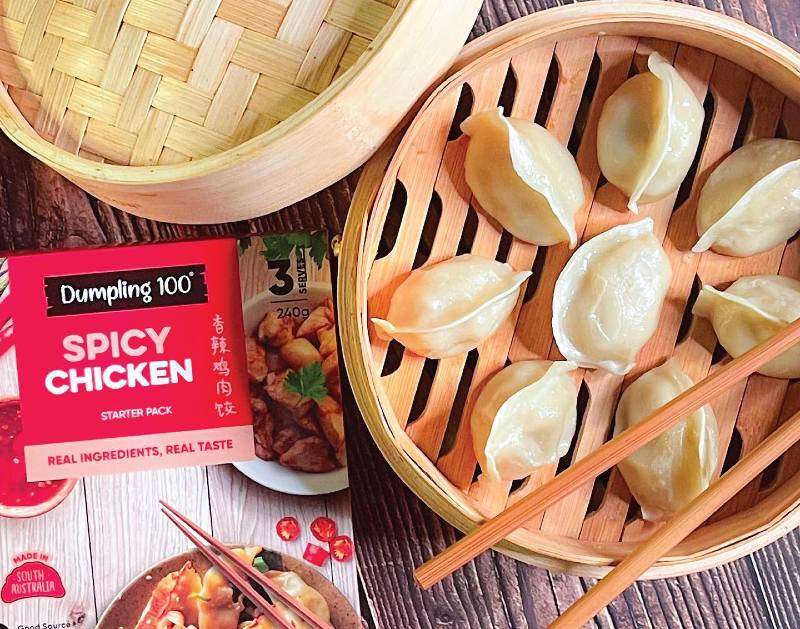Ayam Brand is a household brand in Asia, best known for its canned fish products from sardines to tuna. That said, according to the firm’s Managing Director in Singapore Roy Teo, internal consumer research undertaken by the firm found a growing demand for options that would fit into a flexitarian diet and offer more sustainable options, leading the firm to create a plant-based meat range.
“The company is over a hundred years old, and though we are best known for our canned fish products, we in fact do also have expertise in a variety of plant-based albeit more traditional items such as baked beans and other canned vegetables,” Teo told FoodNavigator-Asia.
“Given the rate at which the plant-based product trend is growing in the region, the entire group – not just Singapore – decided this would be a major project, leading to our first plant-based range yumeat which currently has a luncheon meat product and a Asian-style minced meat product.
“Because we specialise in canned foods, these new products also naturally had to be canned and come in an ambient form – this presented some major challenges in terms of getting the taste and texture right, as ambient products require high heat treatment which results in a softer texture and altered taste compared to regular canned meat, and it was only because we had internal specialized R&D expertise that we could keep retesting prototypes to get it right.”
The importance of bringing ambient plant-based and flexitarian meat products into the market is because this format will afford consumers a more convenient and affordable option compared to regular plant-based meat products which tend to need to be frozen.
“Convenience is such an important concept for consumers today, particularly the younger generation – few youngsters I know are willing to store the food in the freezer then wait for it to defrost and cook it, it’s all about being ready-to-eat and ready-to-cook with them,” said Teo.
“This means minimum preparation, as little as possible, and the canned option goes a step further by enabling them to even eat the luncheon meat out of the tin directly if they so wish, which is the most convenient you can get.
“In terms of affordability, I dare say we cost slightly more compared to regular luncheon or minced meat as the development cost is still higher, but if compared to other plant-based meat options which are really expensive compared to real meat, these are really affordable – we’re talking S$2.95 (US$2.19) for a 190g tin of luncheon or 195g tin of minced meat with bean paste.”
Expanding the range
The yumeat range is currently available in FairPrice Finest and FairPrice Xtra supermarkets across Singapore, with plans to enter Malaysia soon followed by other APAC markets such as Australia, New Zealand, China, Hong Kong, Thailand, Japan and then potentially Europe.
“For the Asian countries, we expect to enter these markets with these initial first two products by mid-2022, especially as reception in Singapore has been good so far,” said Teo.
“Each market will likely need to have its own recipes of course, we can’t do a one-size-fits-all for this as we need to fit the different local palates, but our R&D centre in Singapore is confident we can cater to all these different innovation needs.
“We’re also looking at expanding the range with more products, and branching plant-based out to our conventional Ayam Brand brand – perhaps with something consumers are familiar with, like making a plant-based version of our tuna.”
Convincing all the different consumers
When it comes down to it, Teo believes the key to a plant-based brand’s success will eventually lie in getting the products right for two types of consumers: Those with a reference and those without.
“Taste is very important when making a plant-based product, and to get this right a proper understanding of the consumer palates is crucial,” he said.
“There are mainly two types of consumers – those who have eaten the conventional meat product and have a reference to compare the plant-based product to the actual animal meat version, and those who have not ever tried the meat option before.
“This isn’t just referring to perhaps those who grew up on a plant-based diet – using my own children as an example, they all know the taste of conventional luncheon meat, so found that there was a slight difference between the animal and plant-based options, but still found this acceptable. But the minced meat with bean paste product is a very traditional dish, and they had never tried the original version before, so when they tasted the plant-based version they actually liked it better than the original as it was less salty.
“So all in all, the products need to be able to cater to consumers that are used to the regular meat options so as to ensure this group can accept these even with the comparison; and also the ‘new consumers’ who have never tried the original product before, where it is important to get the taste right such that they are convinced it is good even without a point of reference.”





